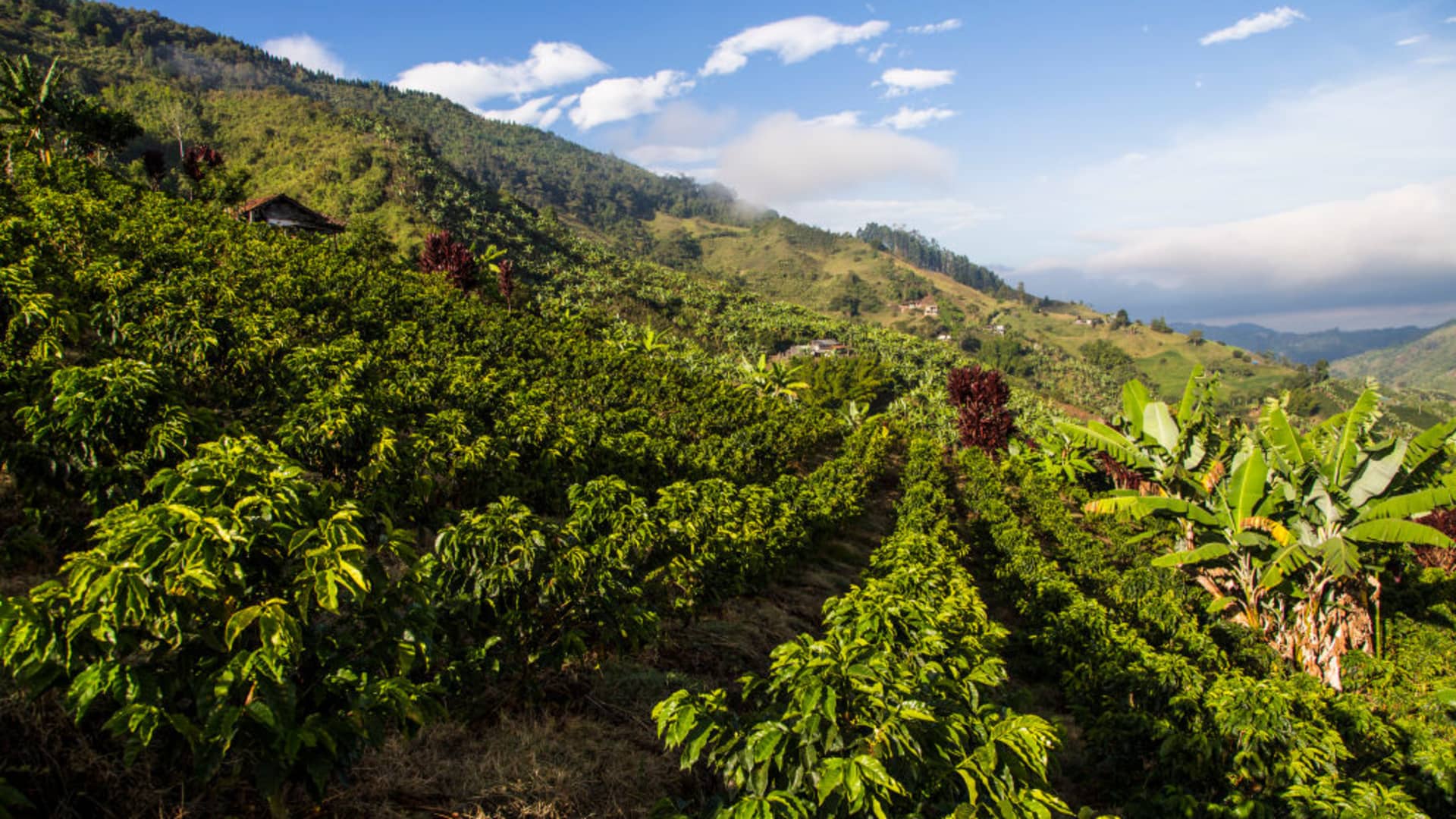
A hot cup of coffee is the perfect start to the day for millions of people around the world. But when taking that first sip, it’s easy to forget how much work goes into bringing it to the table.
From the farmers cultivating and harvesting coffee plants, to milling and roasting, many crucial and labor-intensive steps are involved in coffee production. Like all industrial processes, it often uses a lot of land, water and energy.
This means there’s an increasing amount of scrutiny surrounding the sustainability of the journey from bean to cup — something that hasn’t gone unnoticed by the bosses of the some of the world’s biggest coffee companies.
“We need to change our development model,” Andrea Illy said at the World Economic Forum earlier this month, referencing the “extractive model” of the present and past.
The chairman of Italian coffee giant Illycaffe, who was talking in broad terms, said the current system was depleting natural resources and producing an “infinite” amount of residues.
These were “polluting and accumulating in the biosphere, eventually suffocating it and preventing the biosphere to self-regenerate,” he added.
“The idea is we need to shift this model and create a new ‘bio-mimic’ model, working like nature, using only renewables … possibly solar.”
“We are talking about the energy transition, but it is … a prerequisite of a much bigger transition, which is the ecological one,” Illy also told CNBC’s Steve Sedgwick on the panel at WEF.
Illy’s argument feeds into the notion of the circular economy. The idea has gained traction in recent years, with many companies around the world looking to operate in ways that minimize waste and encourage re-use.
Also speaking on the WEF panel was Maria Mendiluce, CEO of the We Mean Business Coalition. She stressed that ideas connected to circularity were not restricted to food production.
“I don’t think we have exploited, fully, the power of [the] circular economy — also in the industrial systems,” she said, adding that now was “the right moment to do so.”
Mendiluce went on to discuss the rare materials required for the transition to a more sustainable economy, with specific reference to original equipment manufacturers, or OEMs, such as automakers.
“If you talk to the OEMs, [the] circular economy is front and center on the strategy, because we need to recycle these materials — cobalt, nickel, etcetera — to be able to provide the batteries for the future,” she said.
Slowly but surely, companies are developing processes to recycle materials used in technologies crucial to the energy transition.
Last November, for instance, Swedish battery firm Northvolt said it had produced its first battery cell with what it described as “100% recycled nickel, manganese and cobalt.”
And a few months earlier, in June 2021, General Electric’s renewables unit and cement giant Holcim struck a deal to explore the recycling of wind turbine blades.
Returning to the theme of how the natural world could influence business practices, Dickon Pinner, senior partner and co-leader of McKinsey Sustainability, described nature as “like the balance sheet of the planet.”
“There are so many dependencies of the real economy on nature that many companies [and] governments have not yet fully realized,” he said. “The interdependence is … so great.”







